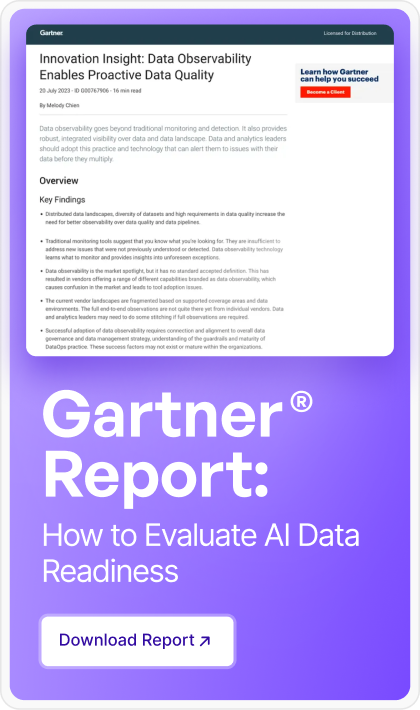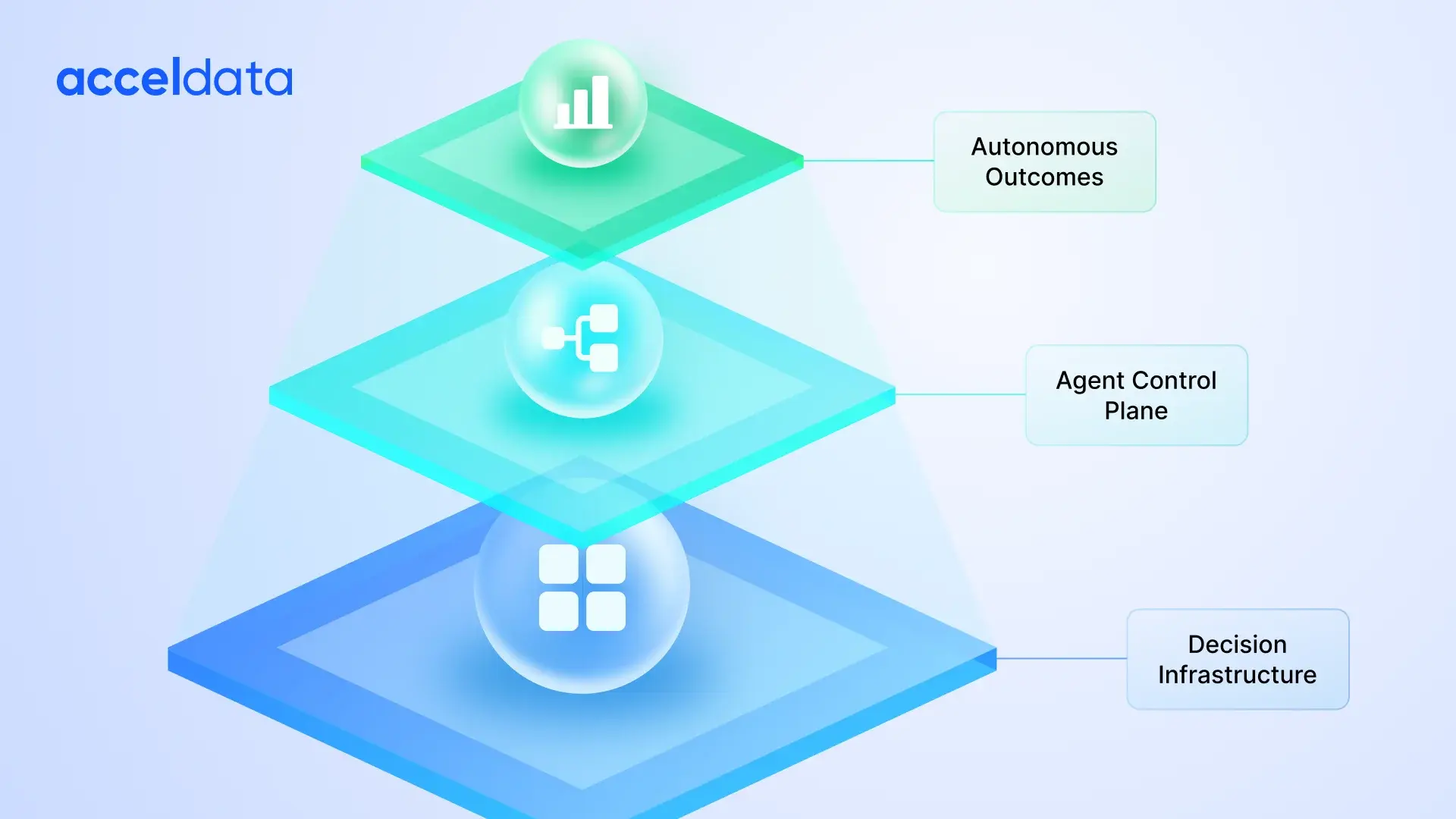As businesses increasingly rely on vast amounts of data for decision-making, operations, and compliance, it is crucial to ensure that data remains accurate, consistent, and trustworthy throughout its lifecycle.
A 2016 study by IBM revealed that poor data quality strips nearly $3.1 trillion from the U.S. economy annually. This loss stems from lower productivity, system outages, and higher maintenance costs, highlighting the severe impact that inadequate data integrity can have on organizations. Without robust data integrity, businesses risk faulty insights, regulatory penalties, and compromised data security.
This article will explore the meaning of data integrity, its core attributes, the challenges businesses face, and the best practices necessary to maintain high levels of data quality.
What Is Data Integrity?
Data integrity ensures overall accuracy, consistency, and completeness of data across its lifecycle. This reliability keeps your data unaltered and safe from its creation to its eventual archival or deletion. In modern environments, where data travels across multiple systems and platforms, preserving its integrity is critical for data quality, security, and compliance.
Maintaining integrity allows organizations to trust their data for analysis, reporting, and operational processes. As a key component of data governance frameworks, it helps establish clear policies and procedures to ensure consistent and trustworthy data handling across the board.
In 1990, a measurement error, less than 1/50th the thickness of a human hair led to the Hubble Space Telescope's primary mirror being misaligned, resulting in blurry images. NASA had to spend an additional $50 million to create and install a corrective ‘contact lens’ on top of the original $2.1 billion development cost. This incident highlights the critical importance of data integrity; even minor inaccuracies can cause significant financial and operational setbacks.
Understanding the Difference Between Data Integrity and Data Quality
At first glance, data integrity and data quality might seem similar, but they address different aspects of managing data. While data integrity is a broader concept, data quality is a specific subset of it.
Data Integrity focuses on preserving and protecting data's original state. It ensures that data remains accurate and consistent throughout its lifecycle, preventing unauthorized changes during storage, retrieval, or processing. Think of it as moving a package from point A to point B without tampering or altering its contents—data integrity ensures the data arrives unaltered and free from corruption.
Data Quality, on the other hand, assesses how useful and effective the data is for a specific purpose. It evaluates whether the data is accurate, complete, consistent, and timely for its intended use. For example, a marketing team using customer demographic data to tailor campaigns needs high-quality data that is up-to-date and comprehensive for effective targeting. However, data quality doesn’t always require strict adherence to its original form, as data can be transformed or combined with other datasets to make it more relevant for a specific task.
In summary, data integrity ensures data remains unaltered and reliable, while data quality evaluates whether data is fit for purpose. Both are crucial for effective data management but serve different roles in maintaining and utilizing data.
Types of Data Integrity
There are two main types of data integrity:
- Physical data integrity: This type safeguards data from hardware or storage failures. By implementing backups, fault-tolerant systems, and disaster recovery plans, businesses ensure that physical data remains intact, even in the face of technical issues.
- Logical data integrity: This type keeps data authentic and consistent as it moves between systems, applications, or databases. It includes constraints like data validation rules, which prevent incorrect data from entering the system, and access control mechanisms that restrict unauthorized modifications.
Core Attributes of Data Integrity
Data integrity rests on four key attributes:
- Accuracy: Data must be correct and precise to be considered reliable. Inaccurate data can lead to poor decision-making and lost opportunities.
- Consistency: Data should remain consistent as it is processed and transferred across different systems. If there are discrepancies, data consistency measures help detect and resolve them.
- Completeness: Data must be kept intact, with no element removed or lost. Incomplete data sets reduce the effectiveness of analytics and decision-making processes.
- Validity: Data should adhere to established rules and formats to maintain its validity and prevent errors that could lead to corrupt or unusable information.
Together, these attributes form the foundation of data integrity, ensuring that business operations rely on trustworthy, high-quality data.
Why Is Data Integrity Important for Businesses?
Maintaining data integrity provides numerous benefits for businesses:
- Regulatory compliance: With strict regulations like GDPR and CCPA, businesses must ensure their data handling processes comply with laws. Data integrity helps meet these requirements by preventing unauthorized access and maintaining proper audit trails.
- Accurate decision-making: Data-driven decisions are only as good as the quality of the data behind them. Ensuring data accuracy and consistency leads to more informed and reliable business strategies. For instance, in 2008, poor data quality and risk assessment led Lehman Brothers to take on more risk than it could handle, and the lack of accurate data masked the real value of assets and liabilities. We all know what happened next: $691 billion in assets were lost and bankruptcy triggered a global financial crisis affecting economies worldwide.
- Operational Efficiency: When data is accurate and trustworthy, organizations can optimize operations without wasting time on manual corrections or duplicated efforts.
By upholding data governance standards and safeguarding data integrity, businesses can ensure data quality and secure data management processes.
Emerging Data Integrity Challenges in Data Management
As organizations grow and data volumes increase, maintaining data integrity becomes more challenging. Here are some key hurdles:
- Growing data volumes: With the exponential growth of data, ensuring that all information remains accurate, consistent, and validated can be overwhelming.
- Distributed data systems: Modern businesses often store and process data across multiple cloud platforms and data centers, which complicates data governance and integrity efforts.
- Cybersecurity threats: Increased exposure to cyberattacks means that businesses must constantly safeguard their data to prevent breaches, tampering, or loss. This requires robust data validation processes and security measures.
To overcome these challenges, businesses must adapt their data management strategies and invest in the right technologies to maintain strong data integrity.
How to Ensure Data Integrity: Key Steps
Ensuring data integrity requires a multi-faceted approach. Here are the key steps to follow:
- Data validation: Implement data validation rules and checks at every stage of data entry to prevent inaccurate or incomplete data from entering your systems.
- Access Controls: Use strict access controls and authentication measures to restrict unauthorized modifications and ensure data remains secure.
- Regular Audits: Conduct regular audits and reviews to verify that data handling practices align with integrity standards.
- Encryption and Security: Protect sensitive data with encryption, ensuring that it remains secure throughout its lifecycle.
- Backup and Recovery: Implement reliable backup systems and recovery plans to prevent data loss during system failures or disasters.
By following these steps, organizations can safeguard their data against corruption, unauthorized access, and loss.
Best Practices for Maintaining Data Integrity
To maintain high levels of data integrity, businesses should adopt the following best practices:
- Regular data validation: Regularly verify that data remains accurate and consistent across systems using validation rules.
- Error detection mechanisms: Use error detection tools to identify and correct issues before they impact decision-making.
- Strong access controls: Limit access to sensitive data to authorized users only and regularly update permissions based on roles.
- Audit trails: Maintain comprehensive audit trails to track data changes and ensure accountability.
- Secure backup strategies: Ensure that data is backed up in secure, off-site locations to prevent data loss.
By integrating these practices into their operations, businesses can protect their data and maintain high standards of data governance.
Top Data Integrity Management Tools and Technologies
Several tools and technologies can help businesses manage data integrity:
- Database management systems (DBMS): Tools like MySQL, PostgreSQL, and Oracle DBMS provide built-in integrity checks to ensure data remains accurate and consistent.
- Encryption tools: Encryption solutions, such as SSL/TLS and AES, protect sensitive data from unauthorized access.
- Blockchain: Blockchain technology offers tamper-proof records, ensuring that data cannot be altered or deleted without proper authorization.
- Data Integrity monitoring tools: Platforms like Acceldata provide real-time monitoring of data integrity, ensuring that businesses can quickly detect and resolve issues.
These technologies help businesses protect their data and maintain high levels of consistency, accuracy, and security.
Trends Shaping the Future of Data Integrity
Several emerging trends are shaping the future of data integrity:
- AI-powered integrity monitoring: Artificial intelligence automates data integrity monitoring, enabling businesses to detect anomalies and resolve issues faster.
- Real-time data validation: As data is generated and processed in real time, new technologies validate data instantly, reducing the risk of inconsistencies.
- Blockchain for secure data verification: Blockchain’s immutable ledgers offer a powerful tool for maintaining data integrity by ensuring that records are verifiable and tamper-proof.
These trends promise to further enhance the way businesses manage and ensure the integrity of their data.
Improve Your Data Integrity with Acceldata
Data integrity is the cornerstone of effective data management, ensuring that data remains accurate, consistent, and reliable throughout its lifecycle. As organizations increasingly depend on data for decision-making and compliance, maintaining high levels of data integrity is crucial to drive informed insights and operational efficiency.
Acceldata provides a suite of tools that help businesses manage and enhance data integrity. With real-time monitoring, advanced analytics, and automated data validation features, Acceldata enables organizations to keep their data accurate, consistent, and secure.
Whether you’re dealing with large volumes of data or need to meet stringent compliance requirements, Acceldata’s platform can support your data integrity efforts and improve overall business performance. Schedule a demo of Acceldata's solutions today.
Summary
Data integrity is essential for businesses relying on accurate and consistent data to drive decision-making, maintain compliance, and secure operations. By understanding the core attributes of data integrity, implementing best practices, and using the right tools, organizations can maintain high standards of data accuracy, consistency, and quality across their data lifecycle. Platforms like Acceldata offer the tools needed to manage these complexities and stay ahead in a data-driven world.
Frequently Asked Questions (FAQs)
1. What is data integrity and why is it important?
Data integrity means keeping your data accurate, consistent, and unchanged throughout its lifecycle. It ensures you can trust your data to make decisions, stay compliant, and avoid costly mistakes.
2. What’s the difference between data integrity and data quality?
Data integrity is about keeping data safe and unchanged. Data quality is about how useful, complete, and correct that data is for a specific task. Integrity protects data; quality makes it valuable.
3. What causes data integrity issues in organizations?
Common causes include human errors, system failures, unauthorized access, outdated backups, and inconsistent validation rules across platforms.
4. What are the key signs of poor data integrity?
Mismatched values, missing records, unauthorized changes, or inconsistent formats across systems are common indicators that data integrity has been compromised.
5. How can businesses maintain strong data integrity?
Use data validation rules, access controls, encryption, regular audits, and secure backup systems. These steps help ensure data remains accurate, complete, and secure.
6. Why does data integrity matter for compliance and audits?
Regulations like GDPR or HIPAA require accurate and traceable data. Strong data integrity practices help you meet these standards and avoid legal or financial penalties.
7. What are the risks of ignoring data integrity?
Ignoring it can lead to bad decisions, lost revenue, system downtime, compliance issues, or reputational damage—especially when relying on incorrect or corrupted data.
8. How does Acceldata help monitor and improve data integrity?
Acceldata’s platform uses AI-driven data observability to monitor data in real time. It detects issues early, ensures consistency, and keeps data secure and audit-ready.
9. What is agentic data management and how does it protect data integrity?
Agentic data management uses intelligent agents to monitor, diagnose, and correct data issues automatically—helping prevent integrity risks without manual oversight.
10. Which tools or technologies are best for managing data integrity?
Top tools include database systems with built-in checks, encryption software, blockchain for verification, and platforms like Acceldata for real-time integrity monitoring and analytics.








.png)








.webp)
.webp)


